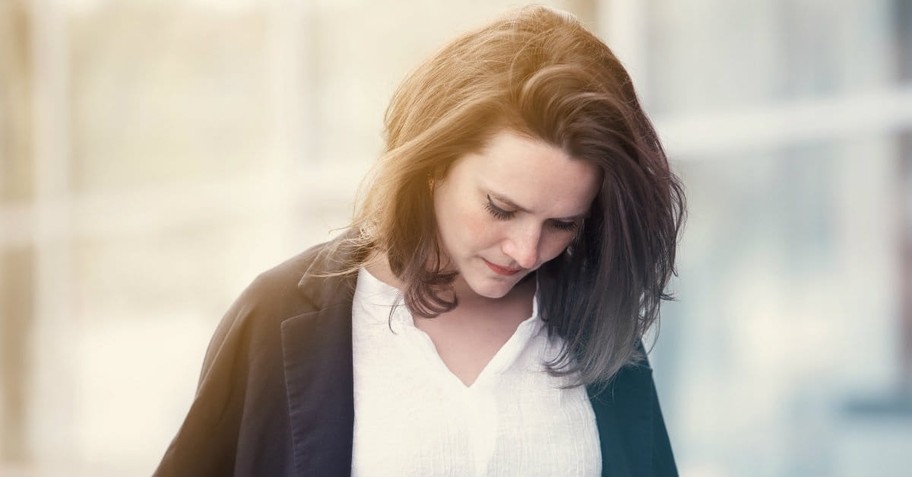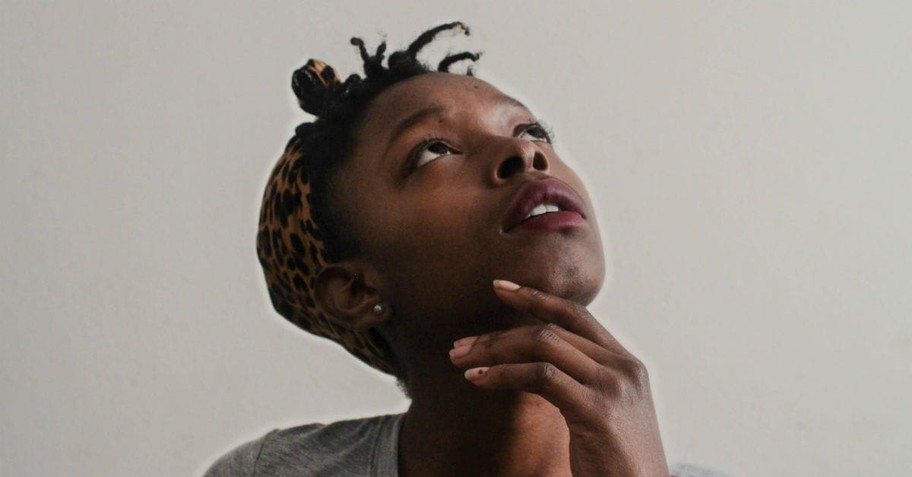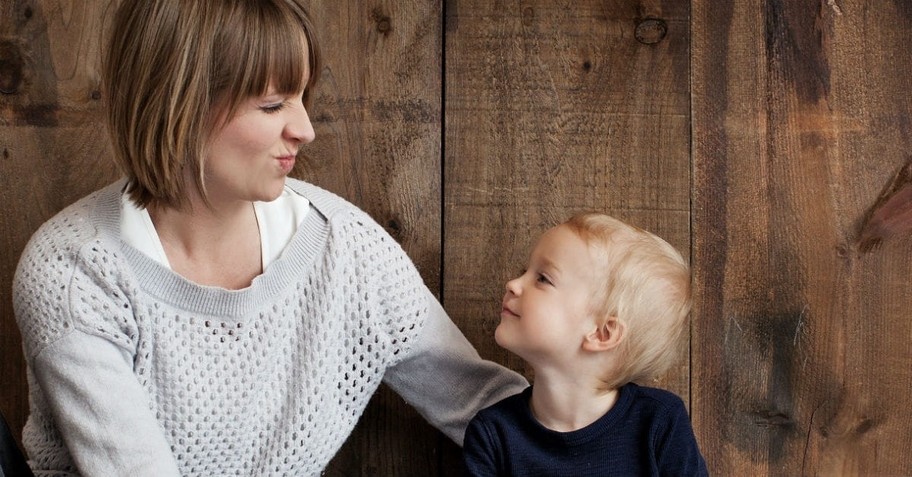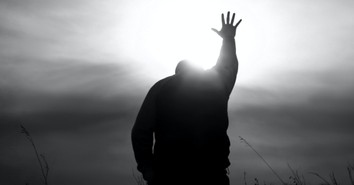How to Trust God in the Difficult Seasons of Change

Seasons come and seasons go. We can count on it. Summer fades into fall, fall into the crisp winter season, which sprouts anew each year into spring. Spring saunters into summer and the cycle continues. It doesn’t matter what part of the country you live in, seasons are evident.
“There is an appointed time for everything. And there is a time for every event under heaven.” -Ecclesiastes 3:1
It’s inevitable: CHANGE HAPPENS. Change can be perceived as good, like springtime bursting forth: job changes, birth, children moving out, new friendships, or going to college. Change can be perceived as negative, moving into the winter season: job loss, death, children moving out, friendships ending, or divorce/separation.
Cycles continue, life progresses on and CHANGE HAPPENS.
Photo Courtesy: Unsplash

Sometimes we become impatient in the waiting.
Whether positive or negative, change usually brings feelings of fear, anxiety, indecision, tension, confusion, hopelessness. Our emotions are a part of change. Seasons of change can last for a few weeks, months, and even years. Change lasting longer than expected can often be agonizing.
Oftentimes, we lose heart or vision during seasons of change, because it doesn’t appear anything is happening. Learning to trust God with change can be challenging.
My little ones taught me a good lesson about how we can become impatient during a season of change. For a homeschool science project, I bought cocoons off the internet to learn about the life cycle of a butterfly.
For my boys, the waiting and trusting a butterfly would emerge was SO hard. They wanted to ‘help’ the process along. They asked multiple times if we could help the butterfly out of the cocoon.
How often have I taken a season of change into my own hands?
Photo Courtesy: Unsplash

We have to learn to trust God with change.
There is a tension that happens when we are in the midst of change. Living in the middle of what was and the hope of what is yet to come is challenging. We have to LEARN that we can trust God with change, even when we don’t see the end.
We are told in Psalm 37:34, “Don’t be impatient for the Lord to act! Keep traveling steadily along his pathway and in due season he will honor you with every blessing.” (TLB)
As we navigate the tumultuous waters of learning to trust God with change, we have to decide where we are going to place our trust or anchor our soul. We can look at many biblical figures to see how they navigated change. Some of those heroes of the Bible made it through as they put their trust in God, while others got lost on the path to their destination.
Photo Courtesy: Unsplash

Naomi experienced loss and had to deal with changes.
Years ago, I was thrust into the biggest change of my life: I went from being a married wife with 4 children to being a single mom. During this challenging season, I latched on to the story of Naomi from the book of Ruth. She became my hero as I imagined what she must have felt, the tears she cried, the bitterness of her soul and eventually, the redemption of all she had lost.
As I poured over the extreme challenging changes that Naomi was faced with, I began to imagine what she must have felt and even said as she journeyed with her husband away from all that was familiar to a foreign land:
“A long time ago, when judges still ruled over Israel and the land was dried up with famine, a man from Bethlehem, which ironically means “place of bread,” left his home in Judah to live as a foreigner in the land of Moab… but soon after, Elimelech died leaving Naomi in the care of her sons. Each son married a woman from Moab—one was named Orpah, the other Ruth—and they lived together for 10 years before Mahlon and Chilion died also. Naomi was left alone, without her husband and two sons.”(Ruth 1:1,3 VOICE)
I felt that agony of loss with Naomi as she grieved her whole family and lost her livelihood. I could identify with the reality of this pain and the fear that all of these changes bring.
Photo Courtesy: Thinkstock

Naomi turned her face toward God.
In the midst of grief, Naomi heard some good news. Over and over in my life, when I have been confronted with agonizing change, God will faithfully send a little news or nugget to draw my attention to Him. I learned so much from Naomi’s response. She turned her face toward God; she resolved to return.
“Word had reached Moab that the Eternal One had once again brought life back to the land of Israel and blessed His people with food. Naomi prepared to return with her daughters-in-law.” (Ruth 1:6-7 VOICE)
I was amazed by the courage of Naomi; she had been away from Bethlehem a long time. Her family, under the leadership of Elimelech, did something that would have ostracized them from family and community—they went to a land where other gods were worshipped, THEN the sons married women from that land, directly defying what God had said.
Photo Courtesy: Unsplash

In the midst of change, hopelessness can flood our soul.
Having lost their provision, these three widows pressed on to an uncertain future. In the midst of change, hopelessness can rush in and flood our soul, just like it did with Naomi and like it did with me so many times.
“Listen to me, daughters, and go back. I am too old; I will not marry again because I cannot conceive. But even if I could—if I still believed there was hope for me, or if I had a husband and conceived sons tonight, would you waste a lifetime waiting for them to grow up? Would you let this hope for the future keep you from remarrying now? Of course not, my dear daughters. It is obvious that the Eternal has acted against me. My life is much too bitter for you to share with me.” (Ruth 1:12-13 VOICE)
Photo Courtesy: Unsplash

We may hit a wall.
Inevitably, in the journey of learning to TRUST God with change, we will hit a wall. We may become hopeless and lose sight of the promise like Naomi did. Our reflection of the past can lead us into a spiral of imagining a future without hope. Like Naomi, we become bitter when we don’t feel the evidence of God’s goodness. I love the fact that Naomi is not afraid to acknowledge her bitterness of soul:
“She said to them, “Do not call me Naomi (sweetness); call me Mara (bitter), for the Almighty has caused me great grief and bitterness. I left full [with a husband and two sons], but the LORD has brought me back empty…” (Ruth 1:20-21 AMP)
I, too, was a bitter woman and through identifying with Naomi, I learned that the Lord is big enough to handle my disappointment and despair when change is happening in life.
Photo Courtesy: Unsplash
.1200w.tn.jpg)
Ruth saw something beyond Naomi's words.
We read that Orpah returned to Moab and her parents’ home, however; Ruth resolved to stay with Naomi. She saw something beyond what Naomi was saying that convinced her to stay the course. For Ruth, Naomi’s actions spoke louder than her words. My heart was arrested by Ruth’s response.
In the midst of my divorce, my oldest daughter wandered from her relationship with God and with our family. She shut herself off and began to go down a dark path. As I read Ruth’s timeless words, I sensed the Lord implanting a seed of HOPE for the future of my daughter. I felt like how I chose to carry my heart during a season of change would directly affect my daughter.
I sensed the Lord giving me a promise: “if you will set your face to the ‘house of bread’ during the season of death, and the great unknowns of life, your daughter will say to you, like Ruth…”
“Stop pushing me away,
insisting that I stop following you!
Wherever you go, I will go.
Wherever you live, I will live.
Your people will be my people.
Your God will be my God.” (Ruth 1:16 VOICE, emphasis added)
Photo Courtesy: Thinkstock

The Hope of Redemption
As we read on through the end of the story, we see God's plan of redemption unfold:
- Ruth (Naomi’s daughter-in-law) marries Boaz
- Boaz is a Kinsman Redeemer
- Because of the marriage, their firstborn son (Naomi’s grandson) will inherit all the lost property of Naomi’s deceased husband
- Boaz and Ruth have that son named Obed
Obed is the redemption of all that Naomi lost. In him, all her hope is fully restored.
Photo Courtesy: Pexels

But why can we trust God with change?
Why could my little guys TRUST that there was something good, something beautiful that WOULD come forth from that ugly cocoon?
Why did Naomi return to the ‘house of bread’ (Bethlehem) when it appeared God had forsaken her?
Why did she continue to trust God with change?
Why did I choose to trust God when there was no evidence that my daughter would ever turn back to Him?
Why did I continue to trust Him for almost 10 years for the fulfillment of this promise?
Photo Courtesy: Unsplash

Our response to this question determines our destiny.
(It will also affect the destiny of our families and those we may be leading.)
How my boys responded to the invitation to TRUST that a butterfly would come forth, determined the destiny of that butterfly.
How I responded to the question of trusting in God would determine my destiny, the destiny of my oldest daughter and other 3 children…and inevitably the destiny of my grandchildren.
Photo Courtesy: Unsplash

We Can Trust Because We Know the End of the Story
Without the promise of the butterfly, none of us would have waited. We all would have ripped off that ugly outer package to take a peak what was inside. It was the promise of something beautiful that helped us in the waiting. We knew, because we had seen and heard there was something beautiful taking shape inside. So we waited.
We must, like Paul, keep our eyes fixed on the author and finisher of our faith. Change is simply God’s means for bringing us closer to our destiny, but in order to stay the course, it is important to know the beauty of destiny:
- We have a destiny of becoming more of a reflection of Him. (2 Cor. 2:18)
- We have a destiny of bringing His Kingdom here on earth. (Matt. 6:10)
- We have a destiny of producing GOOD FRUIT that represents His character. (John 15:5)
- We have a destiny of beauty coming from ashes. (Isaiah 61)
The Word of God is FULL of promises for our destiny in Christ Jesus.
Photo Courtesy: Unsplash

We can trust God with change...
Because He is the same: Yesterday, today and forever.
Because He is a good God.
Because His word tells us that His plan for us is to prosper us and not to harm us.
Because He knows the end from the beginning.
Because His promises are yes and amen.
And because the opposite of trusting God is trusting ourselves, making ourselves into god and that leads us on a slippery slope into hopelessness.
Photo Courtesy: Unsplash

He is faithful and He will use all things for good.
The story of Naomi is just ONE example of His faithfulness during seasons of change.
You can read over and over how God takes His children through change, the outcome of choosing God, and what happens when we run from God in the times of change. As you study His faithfulness, you will learn more and more WHY you can trust God with change. As you begin to trust Him in the little changes of life, your faith muscle will grow and you will learn that He is the Trustworthy One.
But One Thing Remains…HE is faithful. He knows the plans He has for us (Jeremiah 29:11) and He will use ALL things for good (Romans 8:28).
CHANGE will happen, seasons will come and seasons will go. The question is, WHAT will we anchor our souls on to so that we and our families are not swept away by the tides of change?
Misty Honnold is the Founder and Director of the non-profit organization The Single MOM KC. Misty equips, trains and empowers women to discover the source of their strength in Christ. She publishes a weekly blog on the website The Single MOM KC as well as freelances for other publications. She is working on her first book to be published in 2016; an autobiographical teaching of the Song of Solomon.
Photo Courtesy: Unsplash
Originally published March 07, 2019.





